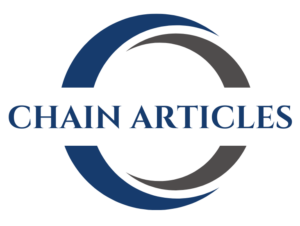Key Takeaways
- As per media reports, SEC Director-General Emomotimi Agama made the announcement during the Nigeria Stablecoin Summit held in Lagos on July 11, 2025
- Agama stated that Nigeria is open to stablecoin ventures, but only under strict regulatory oversight.
Nigeria’s Securities and Exchange Commission (SEC) has announced its willingness to support stablecoin businesses that comply with national regulations. As per media reports, SEC Director-General Emomotimi Agama made the announcement during the Nigeria Stablecoin Summit held in Lagos on July 11, 2025. The summit was hosted by the Africa Stablecoin Network and brought together policymakers, financial innovators, and blockchain industry leaders.
Agama stated that Nigeria is open to stablecoin ventures, but only under strict regulatory oversight. “Nigeria is open for stablecoin business, but on terms that protect our markets and empower Nigerians,” he said. He described his stance as one that supports responsible innovation while safeguarding financial stability.
This statement comes months after Nigeria took enforcement action against Binance, accusing the cryptocurrency exchange of contributing to the naira’s devaluation. In February 2024, the government filed an $81.5 billion lawsuit against Binance and alleged that its peer-to-peer platform enabled illegal foreign exchange transactions. Nigerian authorities also claimed the exchange owed over $2 billion in unpaid taxes.
Following this crackdown, the Nigerian government has clarified that it does not intend to shut down crypto innovation altogether. Instead, it aims to enforce compliance and bring digital asset companies under a formal regulatory framework.
In March 2024, Nigeria’s Minister of Information Mohammed Idris said that most crypto businesses in the country were not facing criminal action. He explained that the enforcement efforts were meant to strengthen laws and ensure operators were regulated.
Agama noted that some stablecoin-focused companies had already been admitted into the SEC’s regulatory sandbox, a testing environment for innovative financial products. These firms are being evaluated based on compliance with risk management standards and transparency requirements.
At the summit, Agama emphasized the long-term role of stablecoins in Nigeria’s financial future. He said the country’s ambition was to become a hub for digital currency innovation in Africa and to attract global investment into its fintech sector. “Five years from today, I want to see a Nigerian stablecoin powering cross-border trade from Dakar to Dar es Salaam,” he said.
The policy shift has already started to attract new investment. In May 2025, Blockchain.com announced it would open a physical office in Nigeria, calling it the company’s fastest-growing market in West Africa. The firm attributed its decision to the Nigerian government’s recent efforts to clarify digital asset regulations.







